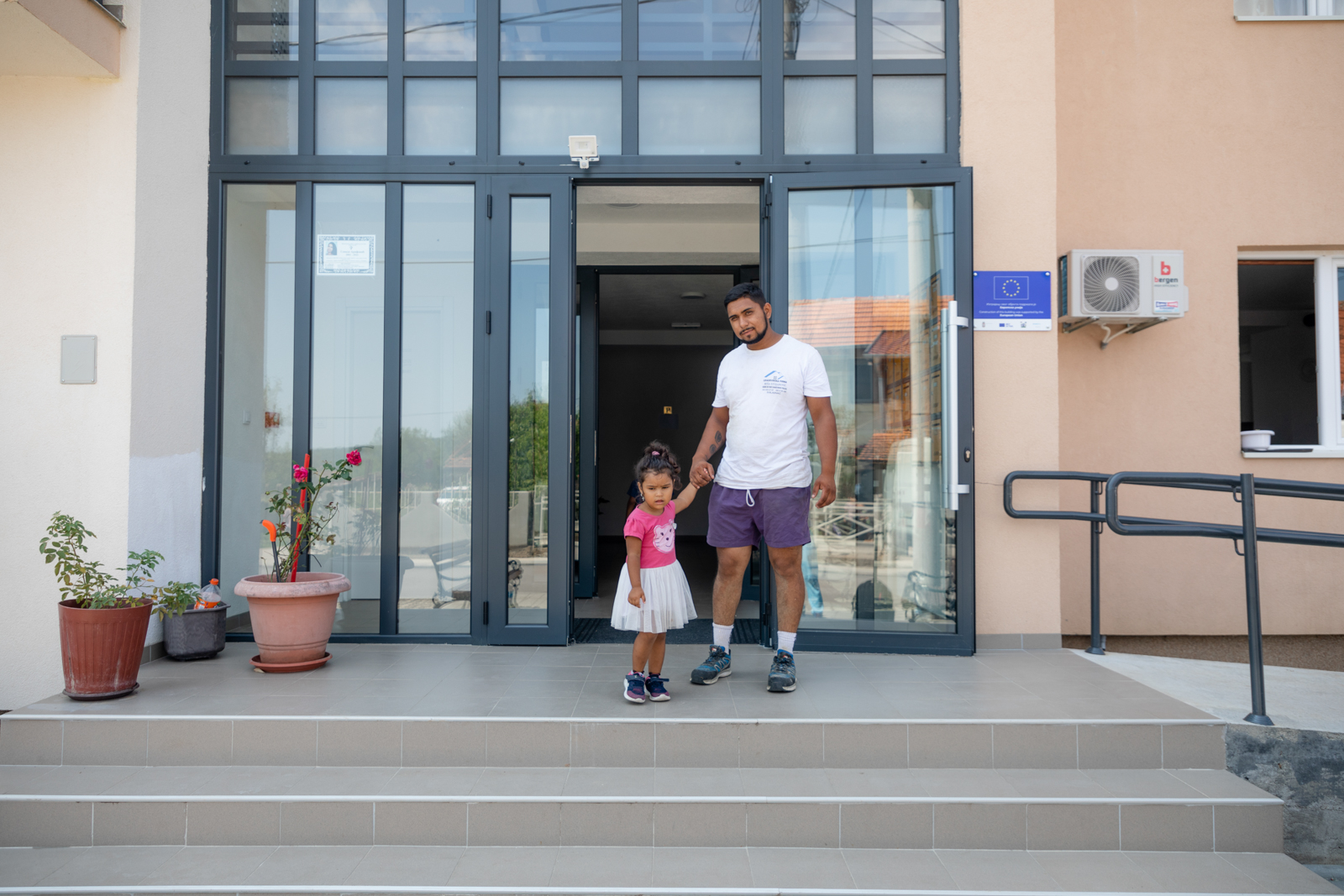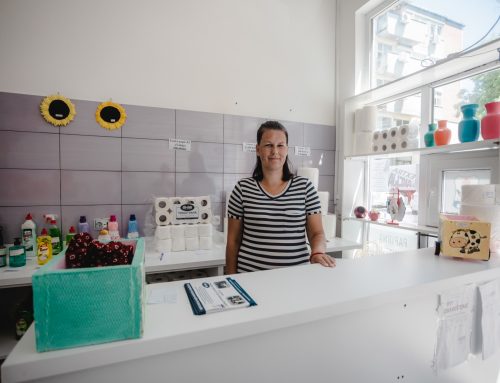When a municipal official appeared at the small gate of the Stojanović family in Svilajnac, near the bus station, they knew that he did not bring them good news. The paper they received was a decision on the demotion of their house and surrounding buildings in an illegal settlement. A multi-member Roma family that moved there since the grandfather built a small room, had to move out.
Above the small room built by my grandfather, my father and I constructed another floor, tidied up the yard and fenced it, but according to the municipality’s plan for the development of this part of the city – it had to be demolished, says Miša Stojanović (21), a worker from Svilajnac.
However, grandson Miša decided not to give up. He applied for the social housing program, believing that he could build a better future for his two daughters and his wife, Katarina. Since he was also engaged in construction – he built, plastered and worked as a construction worker in Svilajnac and the surrounding villages in the south of Serbia.
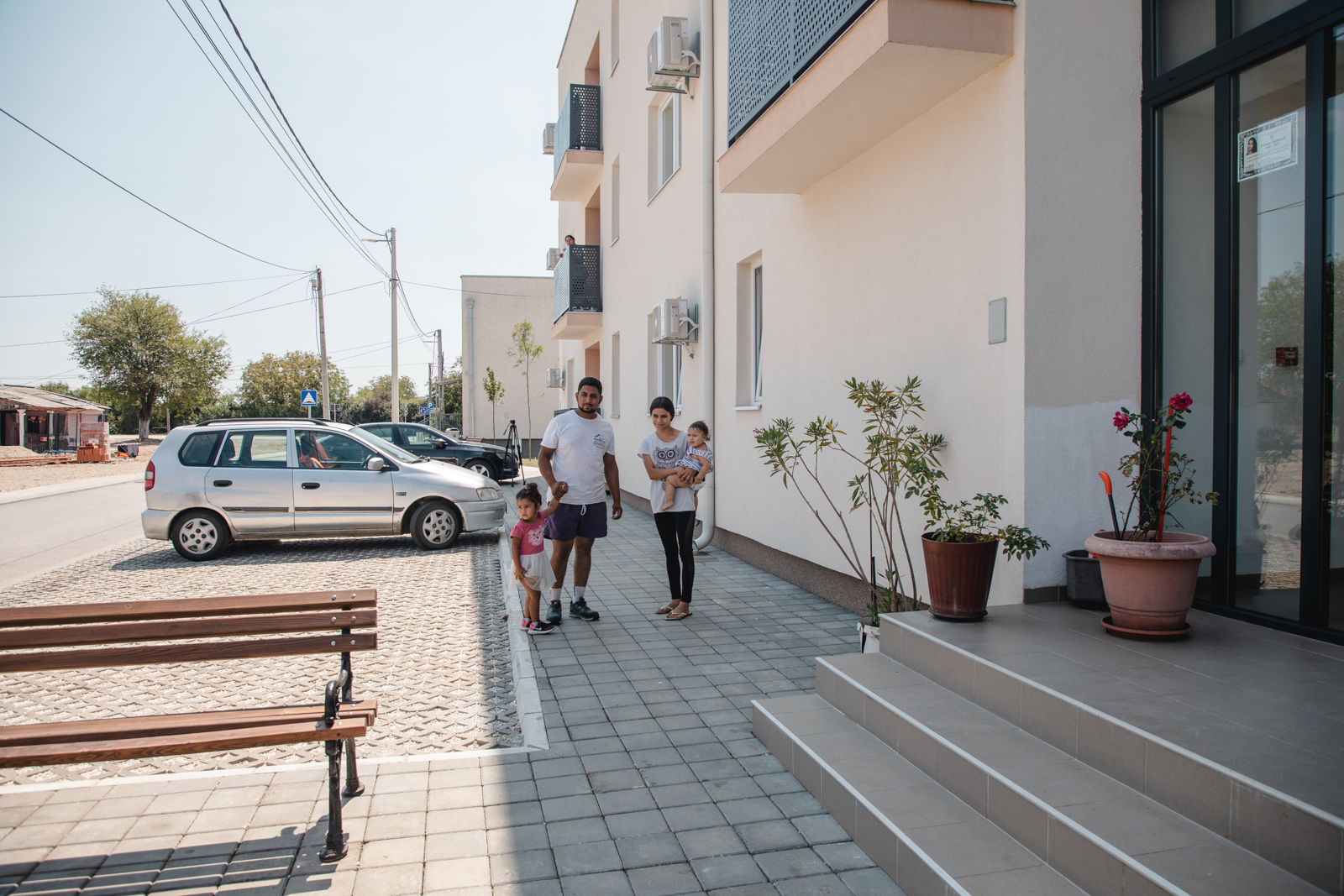
As part of its support for the socially disadvantaged in Serbia, the European Union enabled these residents to start a sustainable business in Svilajnac. Miša thus underwent training and received an officially registered masonry shop for the business activity of construction of residential and non-residential buildings.
Although Miša has ensured regular source of income with his new job, the question of where he will live remained open. And then, the best possible news came. Through the social housing program that Miša applied for after the decision on the demolition of the houses, an apartment in a newly built building in Kamenička Street in Svilajnac, an apartment on the 3rd floor became a new home for four members of the Stojanović family. From the summer of 2023, when they moved to a new address with 25 other families, their girls started to get used to playing in the new park in front of the building. The Stojanović family have turned over a new leaf in their lives, and a very grateful says: The apartment is excellent – the small terrace is on the sunny side, the living room is large, and my daughters have a separate children’s room.
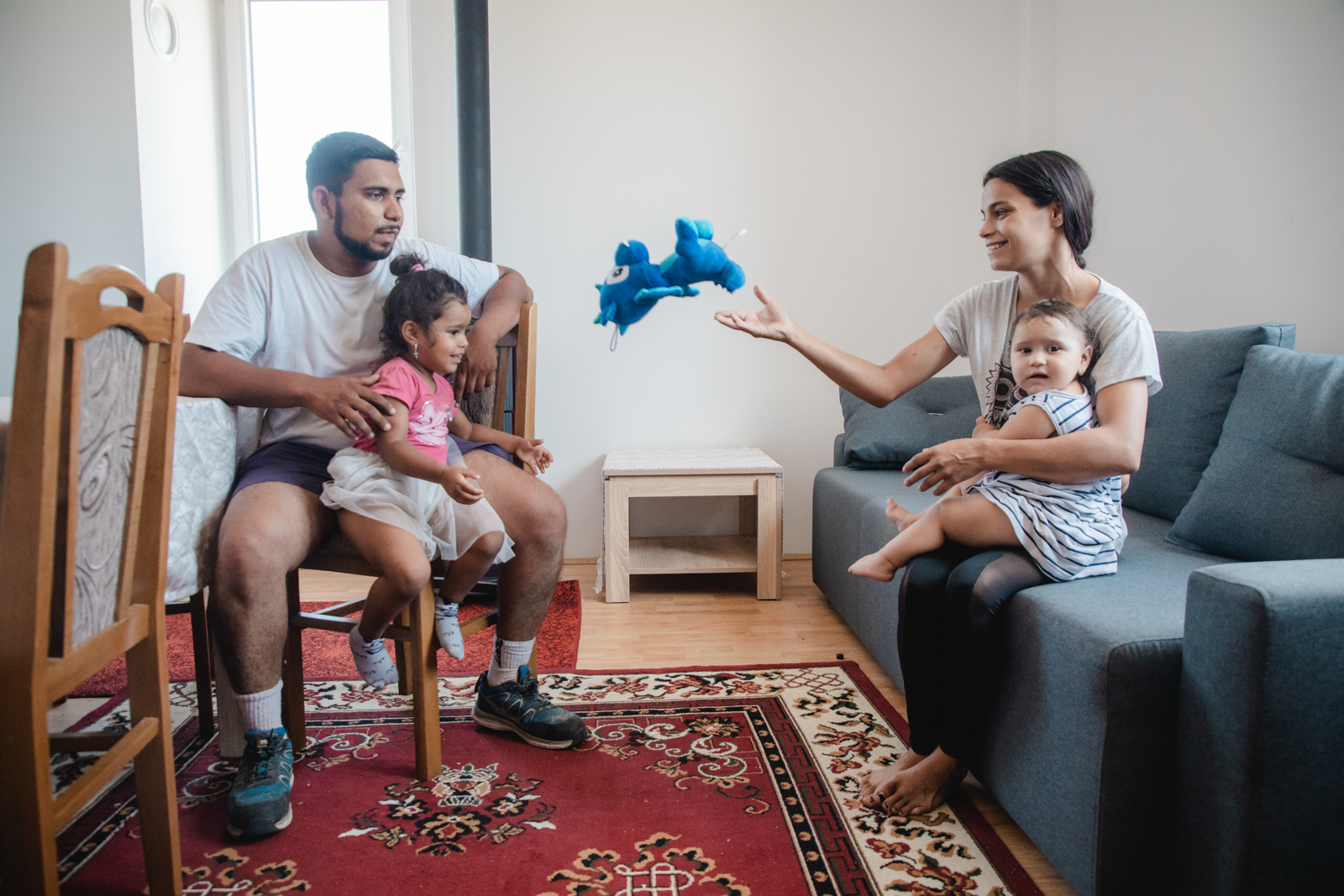
They moved into a new apartment equipped with furniture and basic household appliances. Right by the front door, at the entrance, there is a small wooden box in which the keys to the new apartment of the Stojanović family hang.
According to the official data, some of the most sought-after occupations in Serbia in 2023 are construction workers and craftsmen, right behind the most sought-after IT experts. The south of Serbia is traditionally the place where builders, quality masons and construction workers come from, most often learning the trade through the family business.
Miša spent the summer working at the construction sites in Svilajnac. His construction shop, for which he also printed business cards with contact information, is also on his Facebook page, where he also offers his construction services. According to the census, about 25 thousand inhabitants live in 22 settlements on the territory of the municipality of Svilajnac, which throughout history was known for trade and agriculture. Building houses and renovating apartments in this part of Serbia is a chance for everyone involved in construction, and it is also a chance for Miša. The season is over and there isn’t much to do, but I’m always here. For small repairs, fixing the roof, minor repairs, he says about his business.
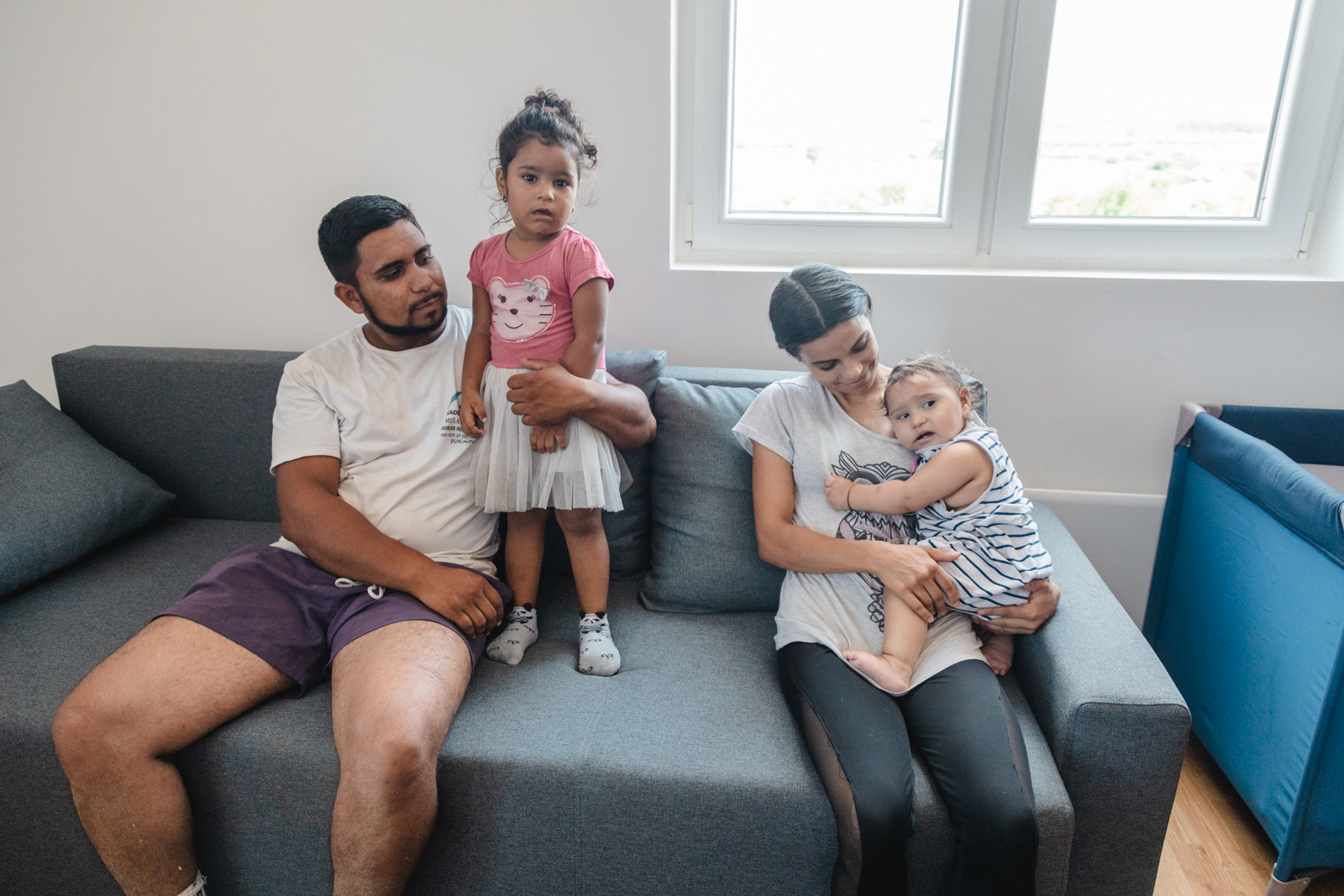
In order to improve living conditions, in a sustainable and responsible manner, for the most vulnerable women and men, girls and boys who live in inadequate and unsafe conditions throughout Serbia, the “European Union Support for Social Housing and Active Inclusion” (EU SHAI) program was launched. EU SHAI was designed to implement social inclusion policies and provide sustainable housing solutions that are accompanied by active inclusion measures for the most vulnerable population. The European Union (EU) allocated 27 million euros for a project that the United Nations Office for Project Services (UNOPS) is implementing in 19 cities and municipalities throughout Serbia, in order to provide more than 380 families with a roof over their heads and support for active inclusion.

